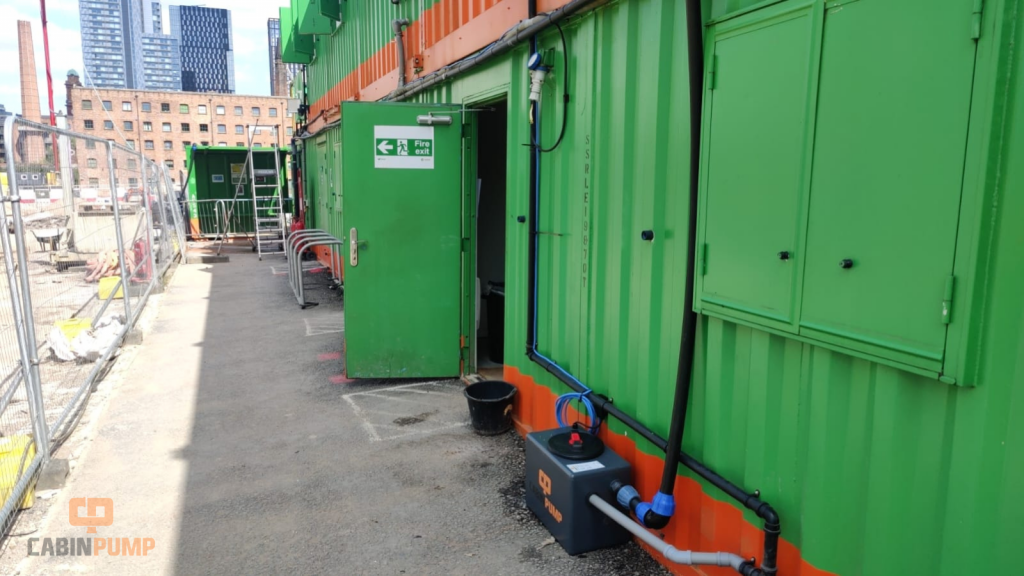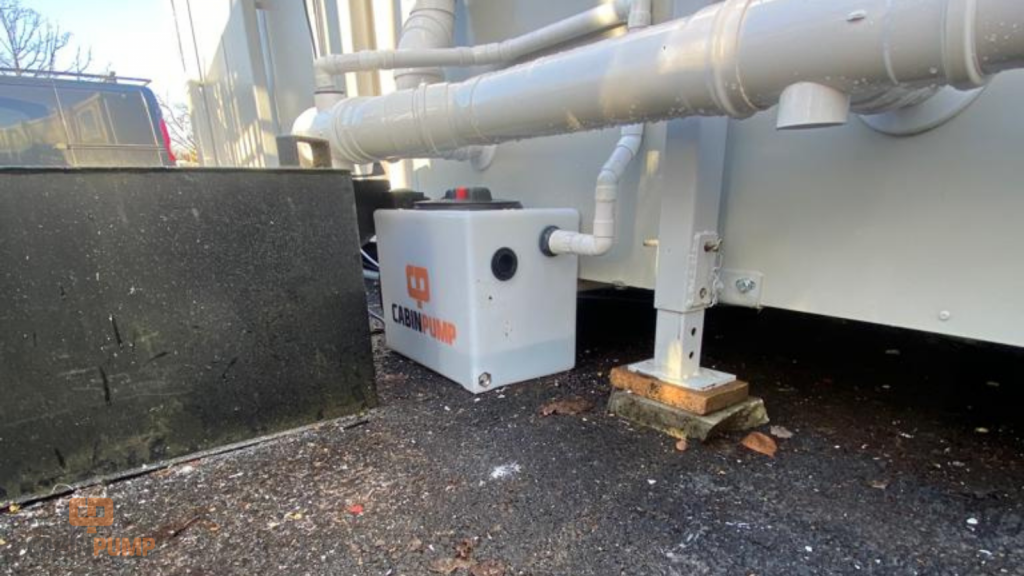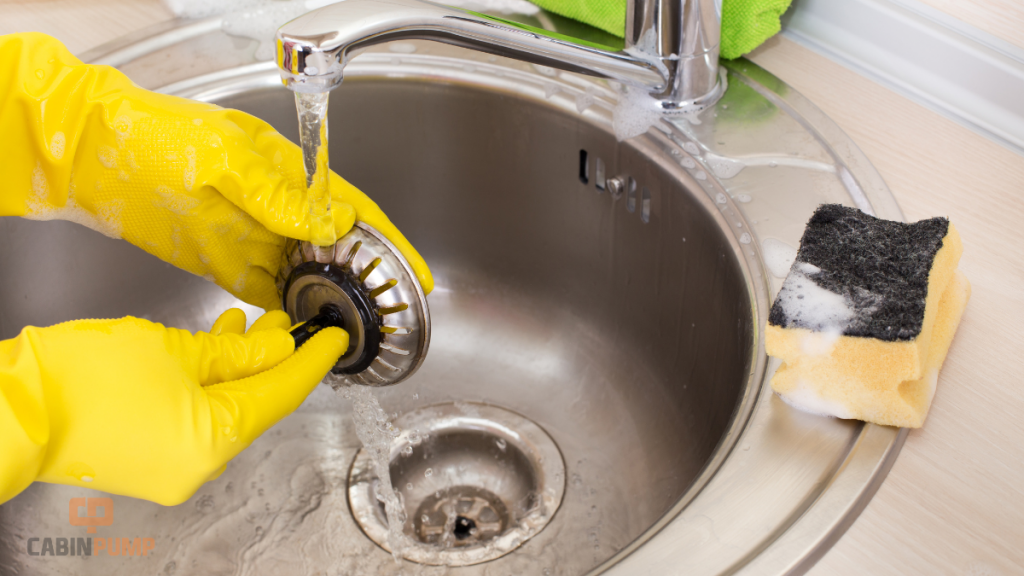Greywater discharge from site accommodation isn’t as much of a ‘grey’ area as you may think…and it can be costly if it goes wrong.
The sinks, hand basins and showers installed in Anti-Vandal (AV) and modular accommodation units on construction sites discharge greywater, and because greywater doesn’t contain human waste, many people assume it’s acceptable to release it into the surrounding soil.
However, greywater often contains harmful chemicals from soaps, detergents and cleaning products which can significantly harm the environment. To prevent pollution, construction sites must properly manage greywater in line with environmental guidelines.
Why Is Construction Site Greywater a Problem?
Greywater refers to the wastewater produced from sinks, showers and hand basins. While it doesn’t contain raw sewage or effluent, it often includes soaps, detergents and cleaning chemicals containing ingredients which can be damaging to the environment when improperly disposed of.

Some chemicals can raise the biological oxygen demand (BOD) of nearby watercourses, reducing the amount of oxygen available for aquatic life and leading to potential environmental degradation. Soaps and cleaning agents can also alter soil pH levels, damage vegetation and contaminate groundwater. This is why greywater from construction sites must not simply discharged into the ground or surrounding areas.
Understanding the Environmental Permitting Regulations 2016
Under the Environmental Permitting (England and Wales) Regulations 2016, any discharge of greywater to a watercourse or the ground must either be covered by a permit from the Environment Agency or be classified as an exempt activity. Failing to adhere to these regulations can result in fines and penalties, as well as environmental harm.
The Environment Agency provides guidance for sewage and water discharge, with specific rules that are highly relevant for construction sites.
These include:
· Connecting to Public Foul Sewers
If greywater is discharged to surface water near a protected site, connecting to a public foul sewer is required if it’s reasonable to do so. If this is not possible, a permit will be necessary.
· Avoiding Non-Standard Systems for Groundwater Discharge
Non-standard systems, such as concrete rings or boreholes, are not considered appropriate for discharging sewage or greywater to groundwater. These systems increase the risk of pollution, and the Environment Agency will not grant a permit for their use.
· Chlorine Discharge Limits
Chlorine, a common pollutant in cleaning products, has specific discharge limits set by the Environment Agency. If greywater is likely to contain chlorine, these limits will be outlined in the required discharge permits to prevent environmental damage.

Managing Greywater on Construction Sites
Proper greywater management is essential for temporary construction site facilities, such as AV and modular accommodation units, to avoid environmental damage and comply with regulations. A practical and environmentally friendly solution is to use a system such as the CABINPUMP Mini from Moduquip
Using CABINPUMP Mini for Greywater Management
The CABINPUMP Mini is designed to pump greywater from site accommodation units, directing it to a nearby gravity drain or CABINPUMP Ultra to safely dispose of it. If these options aren’t available, the greywater can be pumped to an above ground storage tank and later recycled for toilet flushing or other non-potable uses.
This system helps construction sites avoid illegal or harmful greywater discharge and reduces the site’s overall environmental impact. By responsibly managing greywater, construction companies can also ensure compliance with UK environmental laws, thereby avoiding costly fines or potential damage to natural ecosystems.
For more information on CABINPUMP Mini , and the full range of construction site effluent and water management systems, call +44 (0)330 390 4114 or email hello@moduquip.com.
For further guidance on environmental regulations and best practices, visit the Environment Agency at https://www.gov.uk/government/organisations/environment-agency.
Other sources of information:
- Environmental Permitting (England and Wales) Regulations 2016 – https://www.legislation.gov.uk/uksi/2016/1154/contents
- Discharges to surface water and groundwater: environmental permits – https://www.gov.uk/guidance/discharges-to-surface-water-and-groundwater-environmental-permits
- Check if you need an environmental permit – https://www.gov.uk/guidance/check-if-you-need-an-environmental-permit
- Biochemical Oxygen Demand – https://www.sciencedirect.com/topics/agricultural-and-biological-sciences/biochemical-oxygen-demand#:~:text=Biochemical%20oxygen%20demand%20(BOD%2C%20also,period%20(Kaiser%2C%201998).

